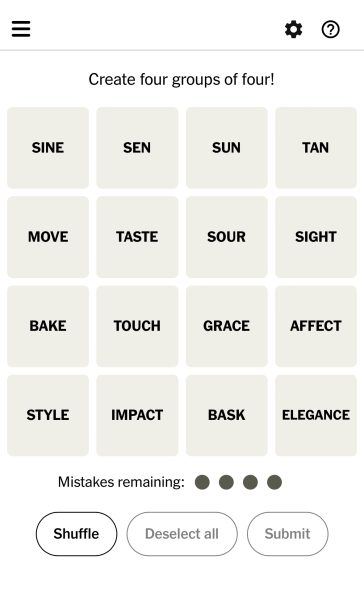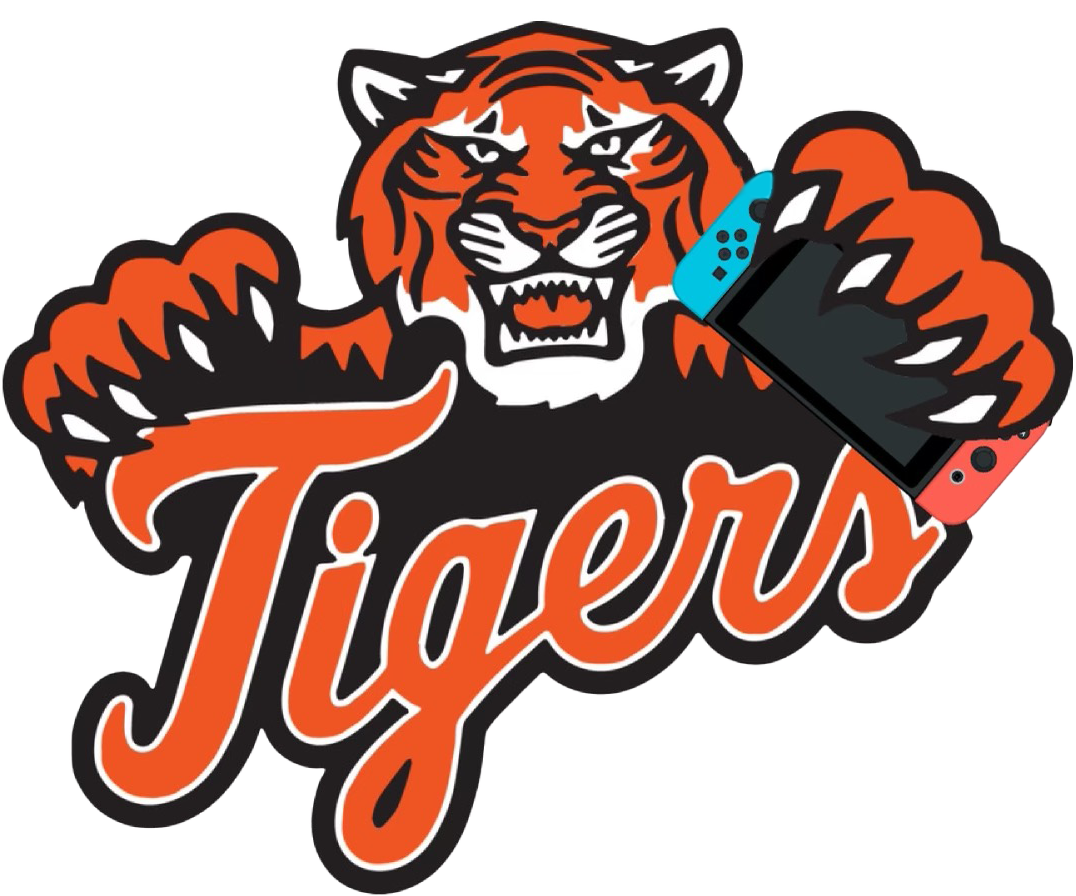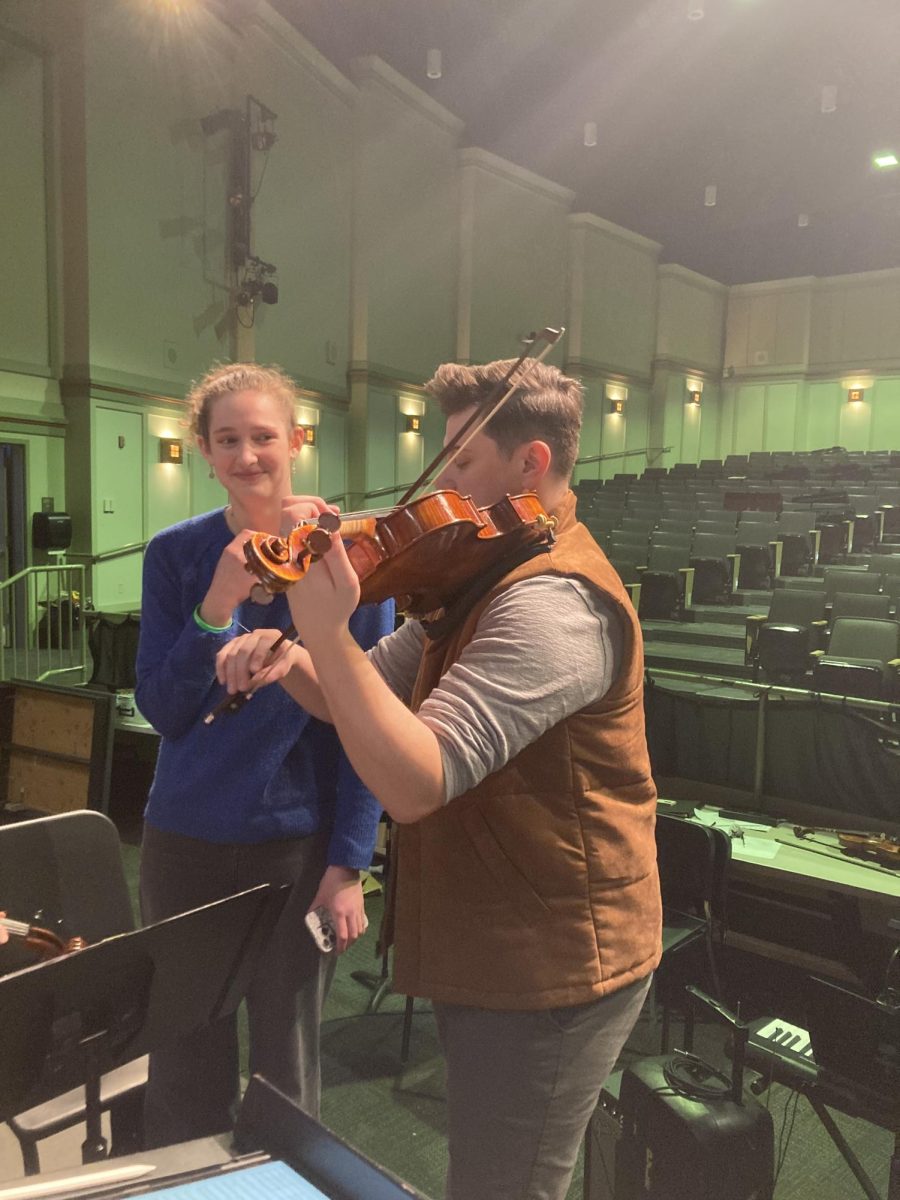Balloon, mushroom, snowball, swell; what do all these words have in common? Well it turns out that they all can mean to become larger. Pretty tricky huh? When grouped with sixteen other words especially so. This grouping of words is the objective of the New York Times game Connections, which is only one of the many puzzles the newspaper has to offer.
In times of old, a newspaper had maybe a crossword, some sudoku or if you were lucky the occasional word search. Now in the new digital age the New York Times offers readers a variety of daily online puzzles. These games seem to have been making their way into the daily routine of many at IHS.
The Wordle: where it all began. Released by Josh Wardle in 2021, this game aims to expand your vocabulary, specifically your five letter word vocabulary. The game quickly gained popularity, as people would compete to best their friends and strangers on the internet by guessing the key word in less attempts than their literary foes. This of course is not without clues. The game works like this: you guess a word, letters in the word but in the wrong spot appear yellow, and letters in the correct spot in the word turn green. Simple? Not so much when there are around 160,000 five letter words in the English language.
We talked to fellow journalism student Joey Powers about his favorite NYT game and he replied, “Wordle. It’s habitual, like I get up and do the Wordle. I like seeing my stats on it. I’ve been doing it for 384 days and I’ve never lost a single Wordle and it makes me happy.”
Mrs. LaFrance is also a fan of the game, “Wordle got me into the NYT games. I saw a lot of buzz about it and tried it, and it was really fun.”
Wordle is great and all, but frankly it’s old news to us. We are more fascinated by the newer games like the Connections as mentioned before and the Mini (what the “gamers” use as slang for mini crossword). Like the Wordle, these games are quick and accessible; perfect for a moment in class when you just need a little break. As Mrs. LaFrance puts it, Connections is “just hard enough but with low stakes.” Connections is now one of the most popular of the games for that exact reason. It takes some real critical thinking skills, but you get to make four mistakes before you lose. Perhaps the little rush of adrenaline we get from winning is what makes these games so addictive. Like making a bed, for some it can be the first little achievement of the day.

Do not fret. Connections and the Wordle are not the only games out there for our wittiest wordies. Spelling Bee, Strands and of course a regular old crossword are available to play. The Spelling Bee, like Wordle and Connections, has gained a cult-like following of daily players. The game goes like this: you are given a collection of seven letters, cleverly shaped like a honeycomb (get it like bees), and the objective is to create as many words with the seven letters as you can. However, the central letter in the honeycomb has to be used in every word.
Strands is the newest addition to the family, and is like a wordsearch with purpose. Each word search has a central theme that is given with a clever bit of wordplay. Players search for words that fit this theme. If they find any that are unrelated, they can be used to reveal clues for the intended theme fitting words. Each Strand has a spamagram: a word that stretches the length of the word search that defines the theme in layman’s terms.
Letter boxed, not to be confused with the social network of a similar name (Letterboxd), is a game that involves connecting letters around a box to form words. There are a few catches; you can’t use the same letter twice in a row and you can’t connect letters that are on the same side of the box. The goal is to use all of the letters within six words but if that’s too easy you can make your own challenge, for example, completing it in just three words is difficult but usually doable.
The more lengthy games, like the full crossword and the Spelling Bee, come with a cost. To have full access to every game at its full length you need to pay one dollar a week. Though this might seem ridiculous, if you think about the fact that you have to pay for a newspaper it’s really not a steep price. LaFrance says, “I think it’s really funny because I would think nothing of paying money for things, but for some reason when it’s something online, in my mind I feel like it should be free so I tend to not.” What else do we pay a dollar a week for? We pay for water, electricity, gas and yada yada, which adds up to be much more than the New York Times charge. Yet completing the New York Times Spelling Bee may not be as important as central heating, at least during the winter.
For their lexiconaly challenged readers there are a few games that do not require a big ol vocab. The two offered are Tiles and Vertex, which although less popular than the word games, are alternative, more visual options.
All in all, the surge in popularity of these word games is likely having a positive effect on everyone, but especially the younger generation. In a time where everyday conversation is dominated by abbreviations and acronyms, growing your vocabulary is ever so valuable. Mrs. LaFrance puts it nicely, “they’re a quick and a nice diversion from life.”





